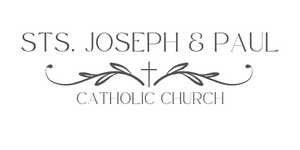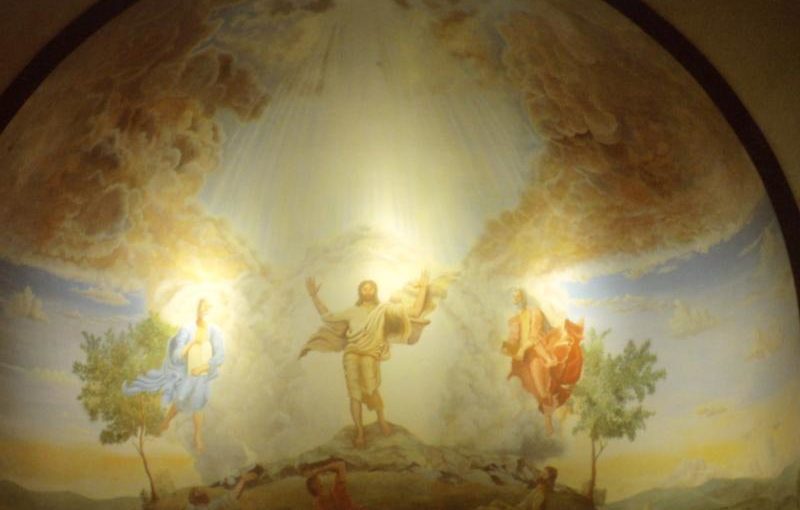 Last week, the first Sunday of Lent, we talked about the temptations of Jesus in desert. Jesus gives us the model, the keys how we have to resist temptations in our lives. Today, the second Sunday of Lent, we read the story about Transfiguration. Jesus transfigured before John, James and Peter. It is wonderful experience. Last Sunday, we were in the desert. Today we are in the mountain. We see Jesus transfigured. We see Jesus transformed. In fact, this story of the transfiguration of Jesus raises two important questions: first of all, we may ask ourselves, what happened? What did Jesus want to teach the apostles John, Peter and James? And what does transfiguration mean for us?
Last week, the first Sunday of Lent, we talked about the temptations of Jesus in desert. Jesus gives us the model, the keys how we have to resist temptations in our lives. Today, the second Sunday of Lent, we read the story about Transfiguration. Jesus transfigured before John, James and Peter. It is wonderful experience. Last Sunday, we were in the desert. Today we are in the mountain. We see Jesus transfigured. We see Jesus transformed. In fact, this story of the transfiguration of Jesus raises two important questions: first of all, we may ask ourselves, what happened? What did Jesus want to teach the apostles John, Peter and James? And what does transfiguration mean for us?
Before going into the explanation and meaning of the transfiguration, we need first to put the event into proper context. Jesus had just told his apostles that He was going to be rejected, suffered, arrested, condemned, crucified, and killed. Even more, Jesus has said to them that, if anyone wanted to be his follower, then they would have to be prepared to walk the same road of rejection, oppression and even death. This was too much for the apostles. All of this seemed like a bucket of cold water on the heads of the disciples. What Jesus said was totally against all they had ever heard about the expected Messiah. Perhaps, they were depressed and confused.
Imagine that your close friend tells you that in few days he will die. How do you feel? Maybe, sad, maybe afraid or concerned. That happened to the apostles. Now, knowing that the apostles were scared and afraid, Jesus wanted to encourage them . He wanted to strengthen them by giving them a sign of his resurrection. Jesus wanted to let them know that his death would lead to glory. That is why, Jesus took Peter, James and John onto the mountain. And suddenly, he was transfigured. His face shines. Then from the cloud came a voice that said: “This is my beloved Son. Listen to Him.” And we see how the apostles were so happy to witness the transfiguration, especially Peter when he said, Lord, it is good that we are here. The apostles understood that life involves more than what they see daily.
Transfiguration gives them a foretaste of Jesus’ glory. It sustains them when they will see Jesus transfigured in blood, pain and suffering on Good Friday. So, Jesus prepared the apostles to understand his passion, his death and his resurrection. He gave them a glimpse of glory to let them know that suffering will not be in vain and that better things await them all. That suffering, even death is not the end. At the end of the day, Jesus was telling his apostles that, hard time was coming: but be strong, be prepared, resist because death is not the end. And Saint Paul in the second reading says that we are citizens of heaven. We are tourists in this world. We must focused on the things of heaven. And never loose sight.
My brothers and sisters, transfiguration is a good news, transfiguration is a message of hope. Good news because it reminds us that life does not end on Good Friday, there is something greater….. the glory of the resurrection. It reminds us that all the crosses we carry now, all the pain and suffering we endure will be transformed by the joy of the resurrection. Transfiguration is a message of hope because it reminds us that we are the citizens of heaven. It is a sign of our own resurrection.
Like Peter, James and John, we also are privileged to witness the transfiguration of Jesus each time we come to the Eucharist where the bread and wine become the body and blood of Jesus. Just as Jesus’ transfiguration strengthened the apostles in their trials, each Holy Mass should be our source of strength. We meet Jesus transfigured in the sacraments, in prayer, in the needy people and the Scripture and He speaks to us ………. To listen to Him we need to have faith like Abraham. This is a good news, this is a message of hope.




